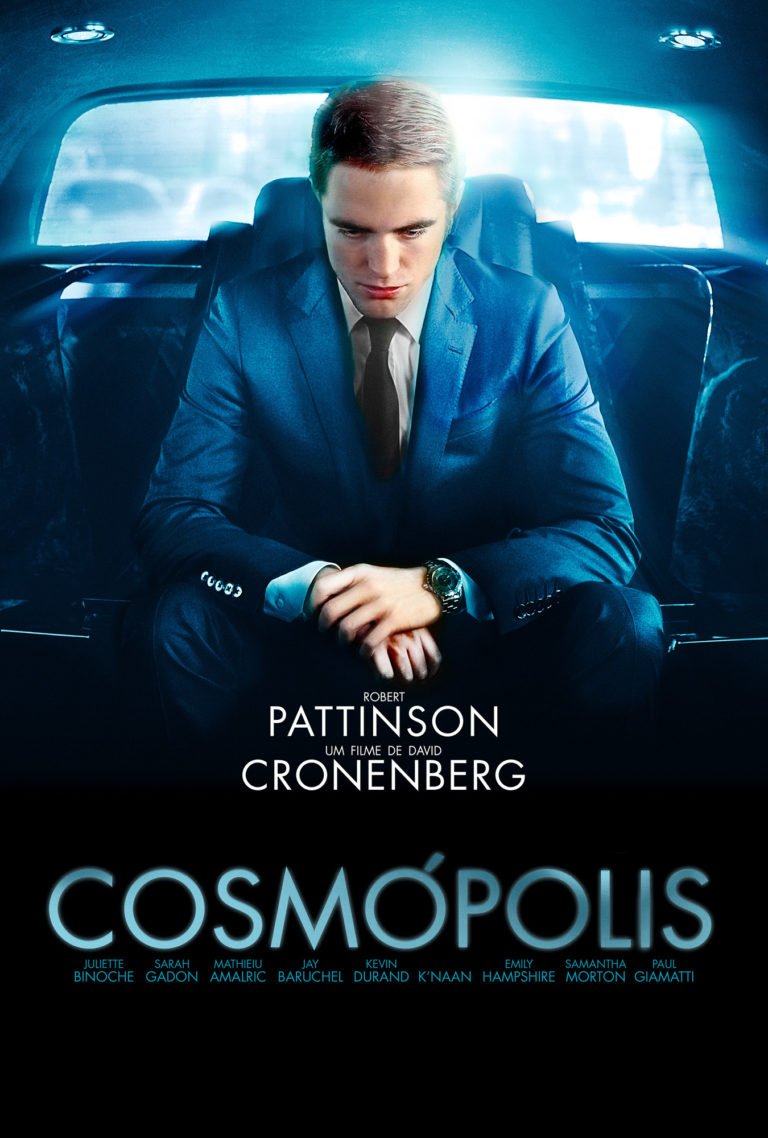“Surreal Postmodern Humanist Irony”

| None | Light | Moderate | Heavy | |
|---|---|---|---|---|
| Language | ||||
| Violence | ||||
| Sex | ||||
| Nudity |
What You Need To Know:
The story in COSMOPOLIS is too episodic to be truly captivating, despite excellent acting, carefully wrought production design, and beautiful cinematography. Also, the dialogue, characters, and situations are arch and surreal. Admittedly, COSMOPOLIS is an attack on capitalism and the so-called 1%. However, the demonstrators don’t come off well either. COSMOPOLIS is a misanthropic humanist take on America, with very strong lewd content and brief graphic violence.
Content:
(HHH, CoCoCo, APAPAP, ACapACap, LL, VVV, SSS, NNN, A, DD, M) A Marxist humanist worldview, philosophically speaking rather than just politically, with a very dark view of New York City, including Wall Street, which becomes a metaphor for America and its capitalist system, with strong anti-capitalist content but where some anti-capitalist demonstrators come off as idiots; 12 obscenities, one GD, one MG; brief very strong violence includes man shot suddenly in head, man shoots himself in the hand, man shot at, threats of violence, demonstrators vandalize limo; very strong scene of adulterous sex, another less-strong scene of adulterous sex; some sexual comments; full female nudity in one scene, partial nudity of man’s pubic hair, upper female nudity, rear nudity, upper male nudity; alcohol use; smoking and cocaine use in one scene; and, misanthropic depiction of modern alienation.
More Detail:
Based on the novel by Don DeLillo, COSMOPOLIS tells the story of one day in the life of young billionaire hedgefund manager Eric Packer, played by TWILIGHT guy Robert Pattinson. Packer has turned his huge limo into a functioning office, complete with fancy computers and elaborate digital displays.
Packer decides to drive across town to get a haircut from the barber he’s been going to since he was a child. The problem is, the President’s in town and protestors have organized a huge demonstration. At the same time, he learns that his favorite music star has died, and they’re having a huge funeral procession for him. Finally, his security man tells him there’s a credible threat on his own life.
As the limo slowly makes its way across town, Packer decides to bet against the Chinese yuan. He starts losing a lot of money, but he sticks by his guns, even though he keeps losing.
Meanwhile, Eric accidentally runs into his new beautiful wife for breakfast, lunch, and dinner. He keeps offering to take her to a hotel nearby for sex, but she’s strangely off-putting. She keeps refusing until, at the end, she tells him they should end the marriage. By that time, Packer’s lost almost all his money. Amazingly, he finds this developing fact liberating and begins to do even more reckless things.
While all this is happening, Packer gets a visit from his mistress. He has another tryst with his female security guard. The anarchists deface his white limo while parading with giant rats meant to represent the evil capitalists. Packer also gets a visit from his doctor, who gives him his daily physical exam. In between all this, he’s visited by his main advisers, including his techno whiz and his “chief of theory.”
Finally, after a sudden act of violence, Packer meets his barber and the disgruntled employee trying to gun him down.
The story in COSMOPOLIS is too episodic to be truly captivating, despite excellent acting and carefully wrought production design combined with beautiful cinematography. Also, the dialogue is just as arch and surreal as the characters and events surrounding the somewhat cynical and heartless protagonist.
Admittedly, COSMOPOLIS is an attack on capitalism and the so-called 1%. However, the demonstrators, including a pie-throwing anarchist, don’t come off too well either. Thus, the movie as a whole strikes MOVIEGUIDE® as more of a misanthropic view of the world, especially modern society. Since it’s set in New York City, however, which is arguably the most famous town in the United States, the movie presents an extremely dark view of America. Therefore, COSMOPOLIS may seem more Anti-American than anti-capitalist.
Be that as it may, the movie’s misanthropic depiction of modern alienation, including among the anti-capitalist protestors, is possibly a Semi-Freudian attempt to represent the alienation that Communist loon Karl Marx describes when he discusses the psychological/social effects of capitalist “evil,” which is just one stage in Marx’s materialist conception of history. Of course, since the Frankfurt School of Marxism, many leftists and socialists (Marx “tended to use” the terms communism and socialism “interchangeably,” according to Marx scholar Robert C. Tucker in his introduction to THE MARX-ENGELS READER, page XX), have tried to combine Freudian analysis with their Marxism. Ultimately, however, the Marxist definition of alienation that may most apply to COSMOPOLIS is Marx’s contention that religion, especially concepts about God, is just man being alienated from himself.
In that light, it’s important to note that, at a crucial moment in the third act of COSMOPOLIS, Packer’s antagonist tells him, “I wanted you to save me.” This line reflects the Marxist alienation between the characters in the movie, but it also shows that, without God – and certainly without Jesus Christ – people are still looking for a savior. In the end, however, COSMOPOLIS is a humanist work that opposes the idea that there’s a divine savior waiting to save us. By coupling this with its anti-capitalist view, it becomes a Marxist work, philosophically speaking though perhaps not in the polemical way that Marx himself intended.
Finally, viewers also should be aware that the movie contains strong foul language, a very strong sex scene, extremely explicit but brief nudity, and brief very strong violence. These, and the movie’s humanist worldview, guarantee a low return at the ox office.


 - Content:
- Content: 

